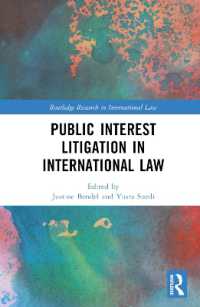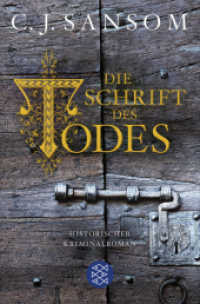- ホーム
- > 洋書
- > 英文書
- > Computer / General
Full Description
Nonlocal Quantum Computing Theory offers a fresh perspective on quantum computing, moving beyond the traditional qubit-based approach to a physics-driven interpretation of computation. This book highlights the limitations and logical flaws in mainstream quantum computing theories and introduces a rule-based, nonlocal quantum computing framework. Covering general-purpose quantum computing, biological applications, and atomic chains in full superposition and entanglement, this book presents a bold new theoretical foundation for the field.
Key Features:
Provides a comprehensive introduction to quantum computing from a nonlocal perspective.
Critically examines the limitations of the standard qubit-based approach.
Explores applications in biological systems and atomic chain computations.
Introduces rule-based nonlocal quantum computing theory as an alternative framework.
Includes a historical overview and discussion of quantum parallelism.
This book is an essential resource for graduate students in physics and computer science, as well as researchers and professionals engaged in quantum information theory and quantum computing. Its innovative approach contributes to ongoing discussions in the field, making it valuable for those seeking a deeper understanding of the foundations and future of quantum computation.
Contents
1. Overview of Quantum Computing. 2. Quantum Fourier Transform. 3. General-Purpose Quantum Computing: Euclidean Computing. 4. Biological Computing: Non-Euclidean Computing Example. 5. Nonlocal Quantum Computing (I): Computing from an Entangled Atomic Chain. 6. Nonlocal Quantum Computing (II): Discussion on Time Crystals, Perpetual Motions and Distributed Superconducting Chain.








